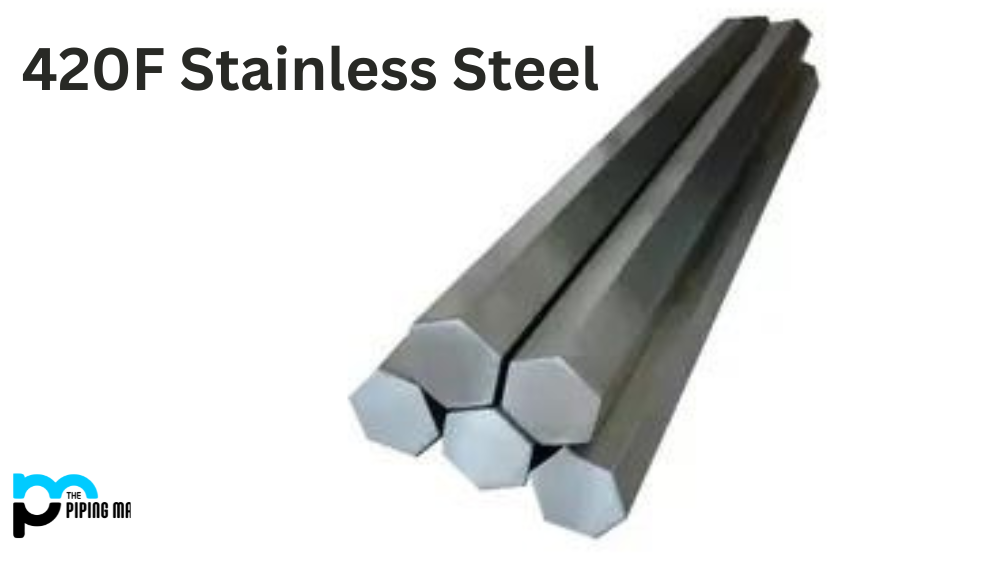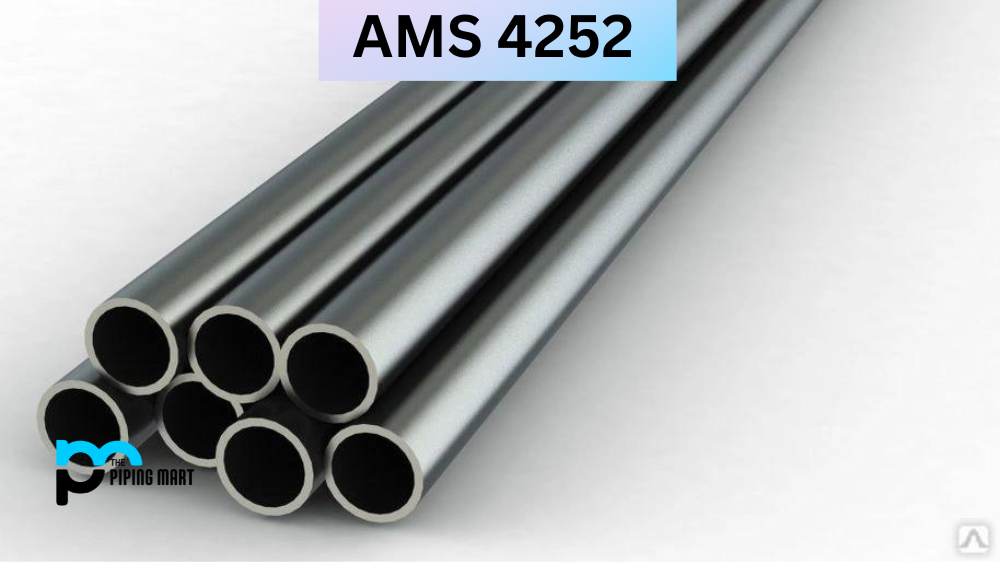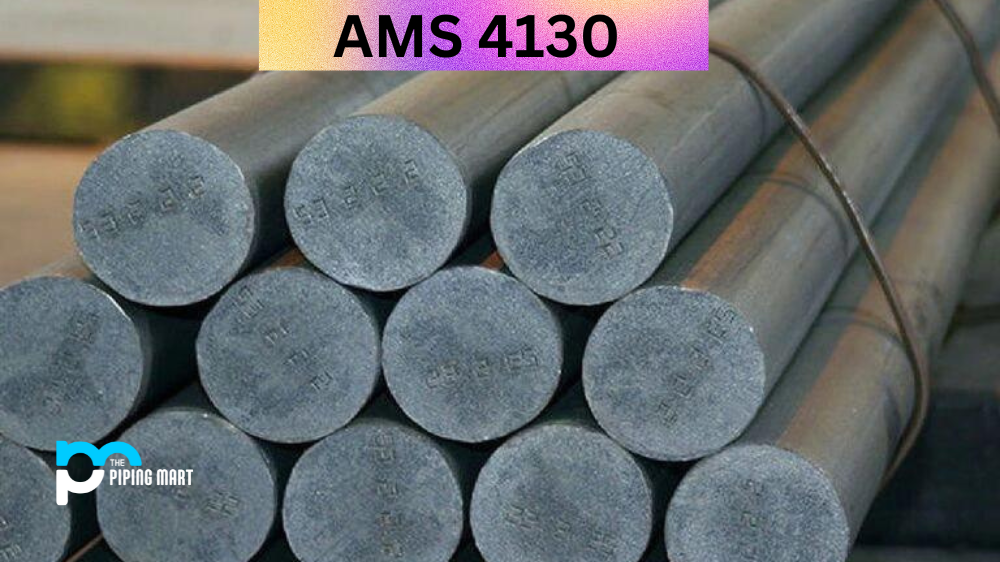Stainless steel is an essential material widely used in many industries due to its unique properties. 420F stainless steel is a martensitic alloy designed to enhance machinability, making it a popular choice for manufacturers. This post will dive into the composition, mechanical and physical properties, and the various uses and heat treatments of 420F stainless steel.
What is 420F Stainless Steel?
420F stainless steel is a high-carbon martensitic stainless steel that contains at least 12% chromium, providing good corrosion and oxidation resistance. It has a relatively low hardness rating, making it ideal for use in manufacturing blades and cutlery. It also offers excellent wear resistance to long-term exposure to temperatures ranging from 400°F – 800°F (204°C – 427°C).
420F Stainless Steel Composition
420F stainless steel is classified as martensitic stainless steel, containing a minimum of 12% chromium. It also includes a high amount of sulfur (0.15%), enhancing its machinability. The high sulfur content in 420F stainless steel makes cutting, drilling, and machine parts easier. It also has a low carbon content, making it easy to weld.
| Element | Content (%) |
|---|---|
| Iron, Fe | 84 |
| Chromium, Cr | 13 |
| Manganese, Mn | 1.0 |
| Silicon, Si | 1.0 |
| Molybdenum, Mo | 0.60 |
| Carbon, C | 0.15 |
| Sulfur, S | 0.15 |
| Phosphorous, P | 0.040 |
420F Stainless Steel Mechanical Properties
The mechanical properties of 420F stainless steel are highly dependent on various heat treatments. In the annealed condition, it has a tensile strength of approximately 500 MPa and a yield strength of 280 MPa. The power of 420F stainless steel can be increased through heat treatment processes, such as cold working, annealing, and quenching.
| Properties | Metric | Imperial |
|---|---|---|
| Tensile strength | 655 MPa | 95000 psi |
| Yield strength (@strain 0.200%) | 380 MPa | 55100 psi |
| Elastic modulus | 190-210 GPa | 27557– 30458 ksi |
| Poisson’s ratio | 0.27-0.30 | 0.27-0.30 |
| Elongation at break (in 50 mm) | 22% | 22% |
| Hardness, Brinell | 220 | 220 |
| Hardness, Rockwell C (converted from Brinell hardness, value below normal Rockwell C hardness range, for comparison only) | 18 | 18 |
420F Stainless Steel Physical Properties
420F stainless steel is magnetic and has good corrosion resistance and toughness. The material has a melting point of approximately 1450°C and a density of 7.75 g/cm³.
| Properties | Metric | Imperial |
|---|---|---|
| Density | 7.80 g/cm3 | 0.282 lb/in³ |
420F Stainless Steel Thermal Properties
| Properties | Metric | Imperial |
|---|---|---|
| Thermal expansion co-efficient (@0-100°C/32-212°F) | 10.3 µm/m°C | 5.72 µin/in°F |
| Thermal conductivity (@27°C/80.6°F) | 25.1W/mK | 174 BTU in/hr.ft².°F |
420F Stainless Steel Equivalents
- AISI 420F
- AMS 5620
- ASTM A895
- SAE 51420F
- SAE J405 (51420
420F Stainless Steel Uses
420F stainless steel is commonly used for manufacturing components that require high machinability. It is often used to manufacture screwdrivers, bolts, nuts, gears, and shafts. It is also popular in the medical industry to make surgical tools.
420F Stainless Steel Corrosion Resistance
420F stainless steel has good corrosion resistance in mildly corrosive environments. It can withstand corrosion from various substances, such as foods and chemicals, making it an ideal material for manufacturing kitchen utensils.
420F Stainless Steel Heat Treatment
The heat treatment process for 420F stainless steel involves annealing between 820°C and 900°C. This process improves its machinability and optimizes its mechanical properties, such as tensile strength.
420F Stainless Steel Machining
420F stainless steel is usually machined in annealed condition because it is more accessible to machines. The material can be cut, drilled, turned and ground using conventional machineries like milling machines, lathes, or CNC machines.
420F Stainless Steel Welding
420F stainless steel has good weldability. Careful low-heat input welding techniques should be applied to prevent sensitization and cracking.
Conclusion
420F stainless steel is an excellent material that offers unique value to manufacturers due to its high machinability, toughness, and corrosion resistance. It also has various uses in different industries, such as medical, automotive, and aerospace. When choosing the best material for your application, it is essential to understand its composition, mechanical and physical properties, heat treatments, and welding processes.

Meet Bhavesh, a seasoned blogger with a wealth of knowledge and experience. From metal products manufacturing to retail, Bhavesh has a diverse background in various industries and is dedicated to sharing his insights and expertise with readers.




